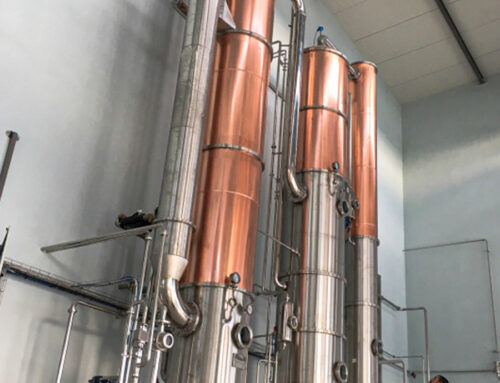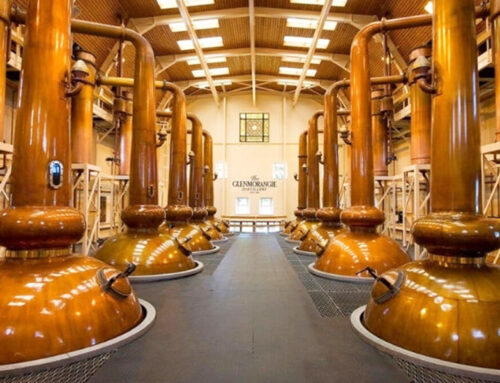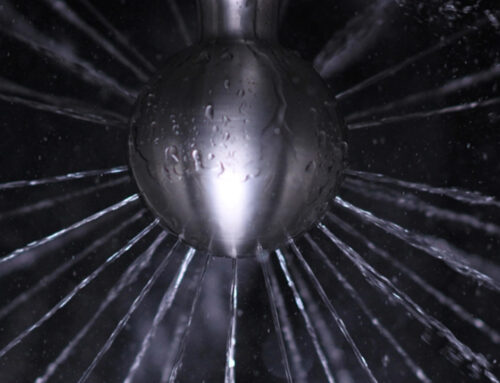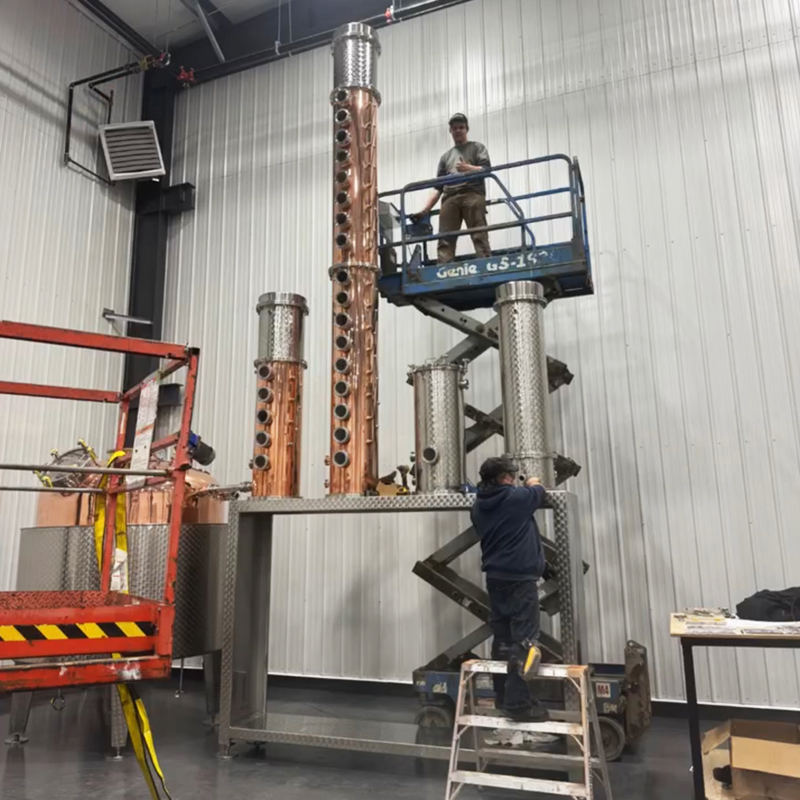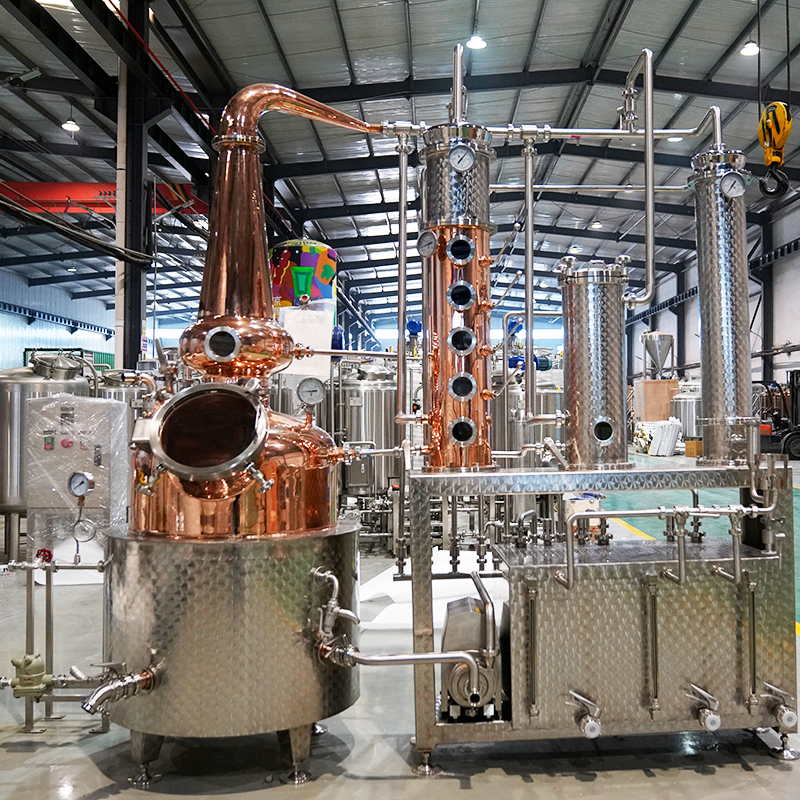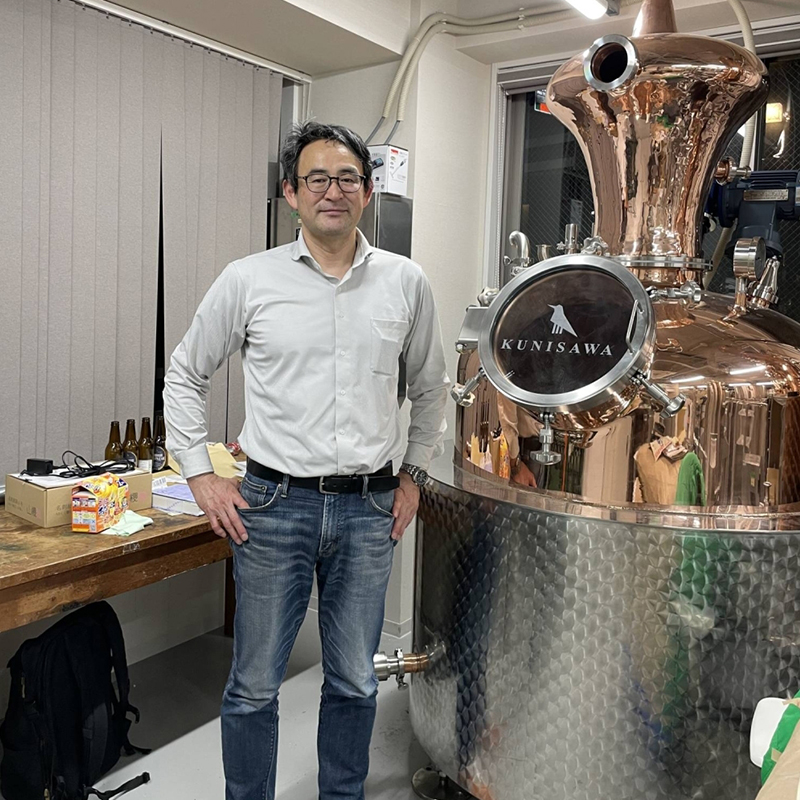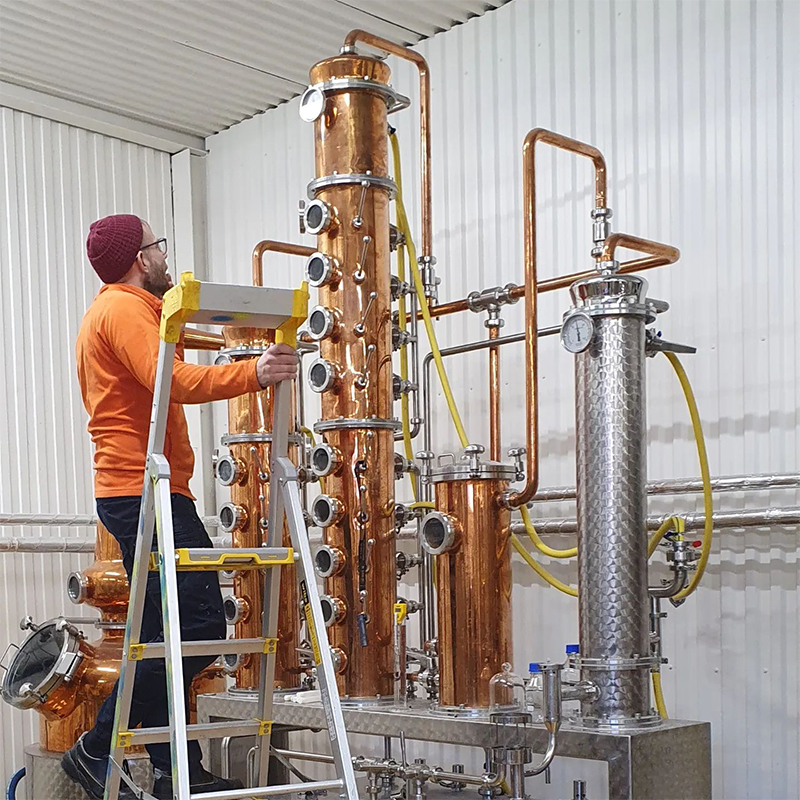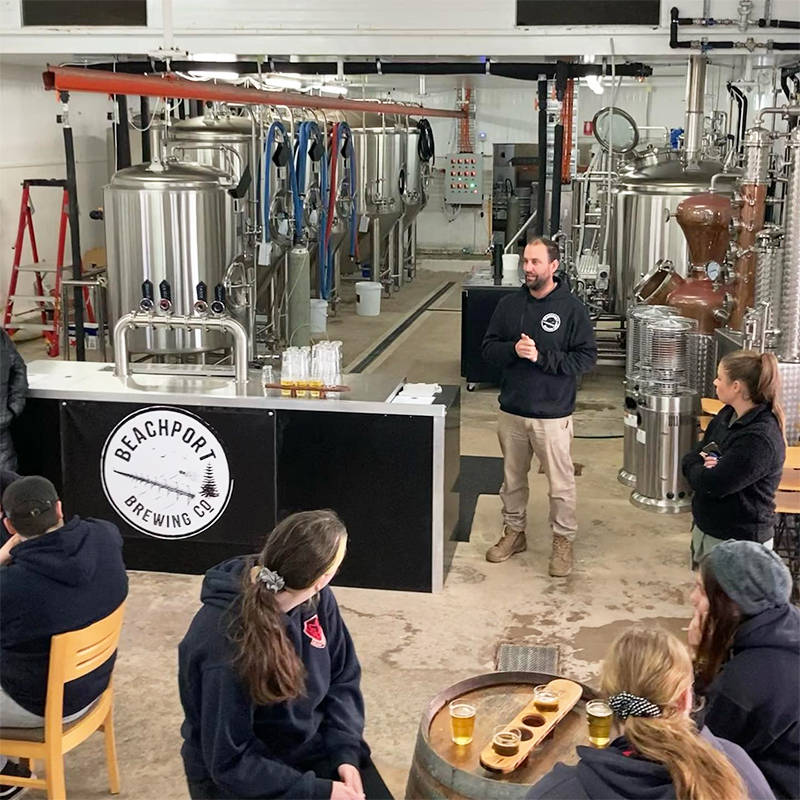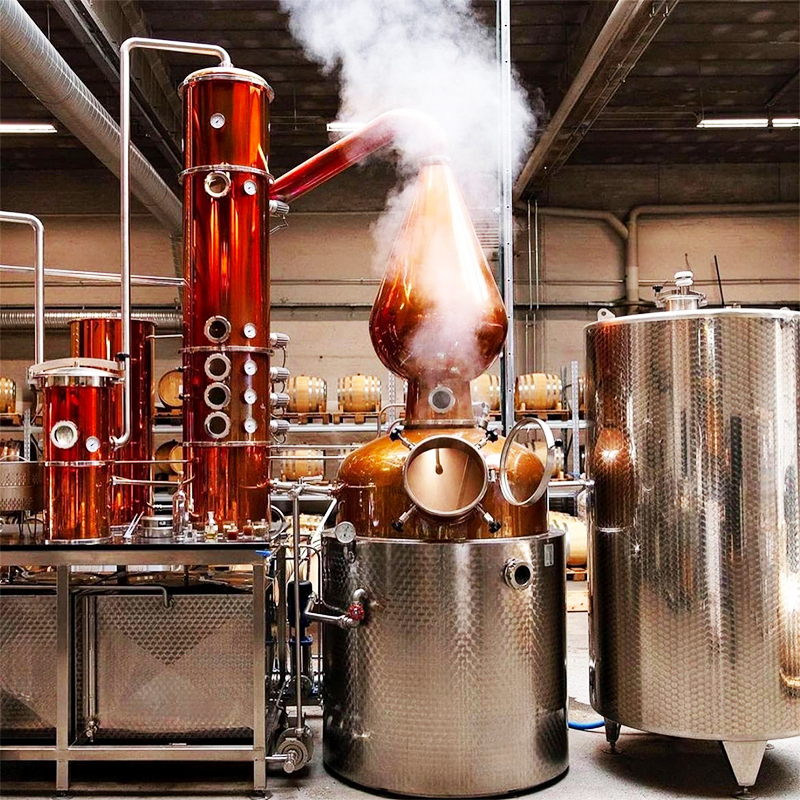
What are the factors that affect distillation efficiency?
Distillation is a key process used in alcohol production and requires the separation of liquid mixtures based on differences in boiling points. Achieving efficient distillation can save time, energy, and resources, making it a key focus for producers and equipment manufacturers. The following are the main factors that affect distillation efficiency.
1. Boiling point difference of components
The success of distillation depends on the difference in boiling points of the components in the mixture. When the boiling points are close, more effort, time, and energy are required to effectively separate the substances. Small differences in boiling points reduce distillation efficiency because it becomes more difficult to separate pure components. Conversely, mixtures with large differences in boiling points are easier to separate, requiring fewer stages in the distillation column and less energy input.
2. Column design and configuration
The design of a distillation column, including the number of trays or packing materials, affects the efficiency of the process. The trays or packing materials provide surface area for vapor-liquid contact, resulting in better separation. Towers with an insufficient number of trays or poor quality packing can result in incomplete separation, which reduces the purity of the distillate. The height of the column is also important – the longer the column, the more contact stages are available, which improves the separation process. Additionally, the choice between packed or tray columns can affect efficiency, as packed columns are generally more efficient in smaller systems, while tray columns are suited to larger operations.
3. Pressure Control
Pressure changes affect distillation efficiency. Operating at lower pressures lowers the boiling points of the components, making separation easier, especially for mixtures with similar boiling points. For example, vacuum distillation is often used for heat-sensitive compounds. On the other hand, too high a pressure can reduce efficiency by compressing the vapor molecules, which reduces the volume in the column available for the separation stage. Maintaining a constant pressure appropriate for the distillation of a specific mixture can help achieve better results.

4. Feed Composition and Flow Rates
The composition of the feed mixture and the rate at which it is introduced into the distillation column are critical operating factors. If the feed mixture contains impurities or is not uniform, the efficiency of the separation process may be reduced. Additionally, too high a feed rate can overwhelm the distillation column, resulting in poor separation and flooding, while too slow a feed rate can result in underutilization of the distillation column capacity. Both of these situations can negatively affect efficiency. Proper control of feed composition and flow rates ensures that the distillation column operates within its optimal capacity.
5. Column Insulation and Energy Efficiency
Heat loss in a column reduces the efficiency of the entire process. A poorly insulated column allows heat to escape, forcing the system to use more energy to maintain the desired temperature gradient. Installing adequate insulation helps retain heat within the column, reducing the need for additional energy input and increasing distillation efficiency.
6. Equipment Fouling and Maintenance
Over time, distillation equipment can become fouled with residue or scale, which reduces heat transfer efficiency and the surface area for gas-liquid contact. Regular maintenance and cleaning of distillation equipment prevents fouling, ensuring that the column operates at peak efficiency. Fouling not only affects efficiency, but can also lead to costly downtime if not addressed.
For industries that rely on distillation, understanding and controlling these factors ensures that the process is cost-effective, energy-efficient, and produces high-quality products.

